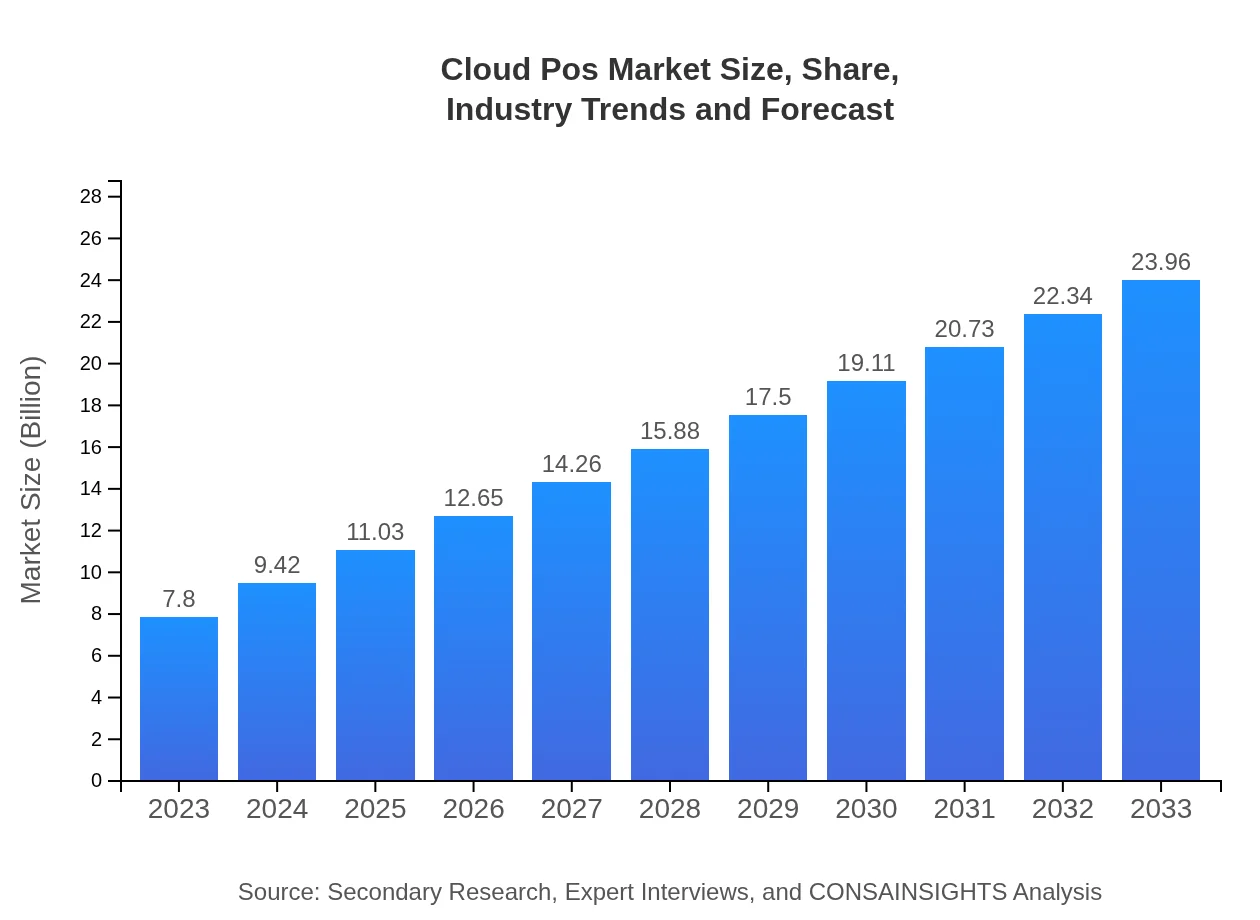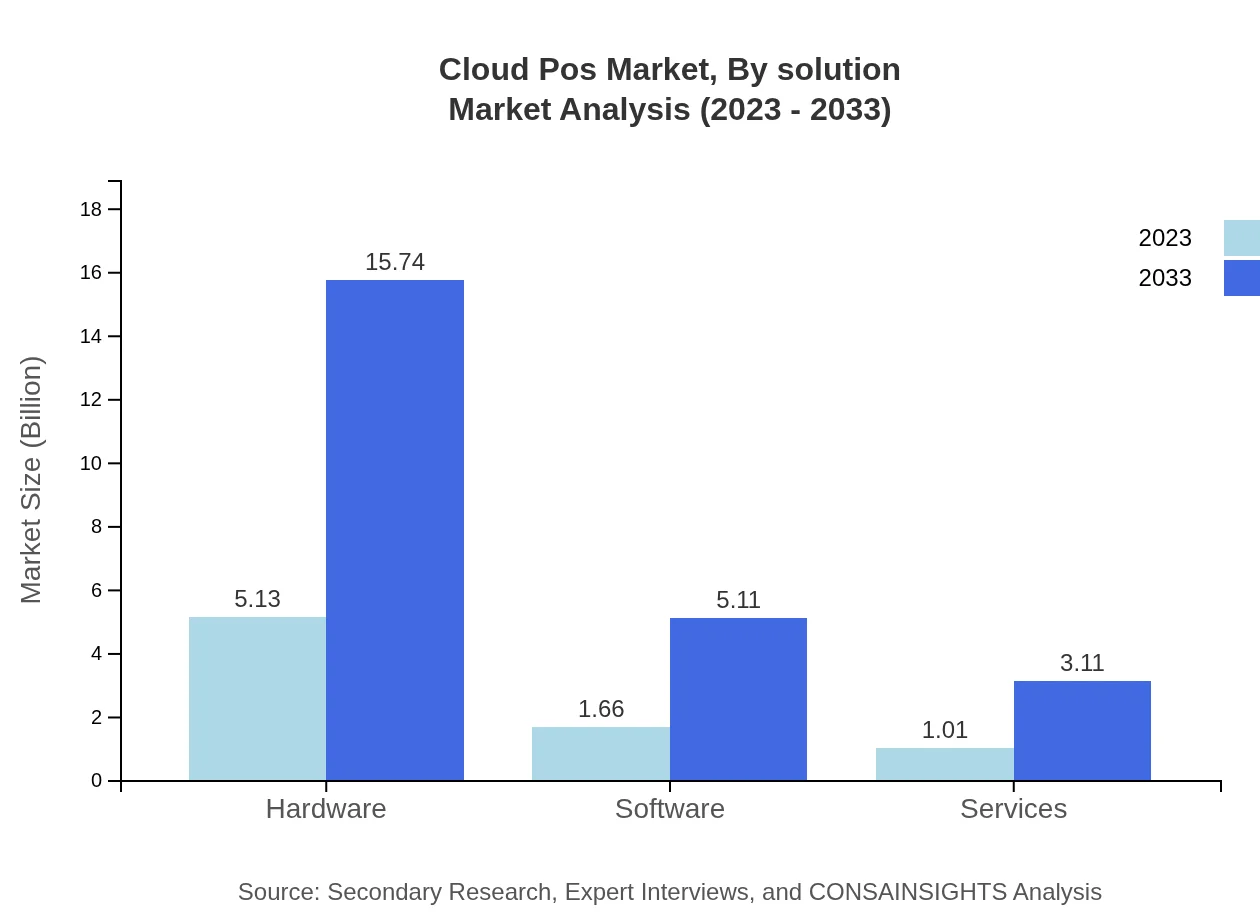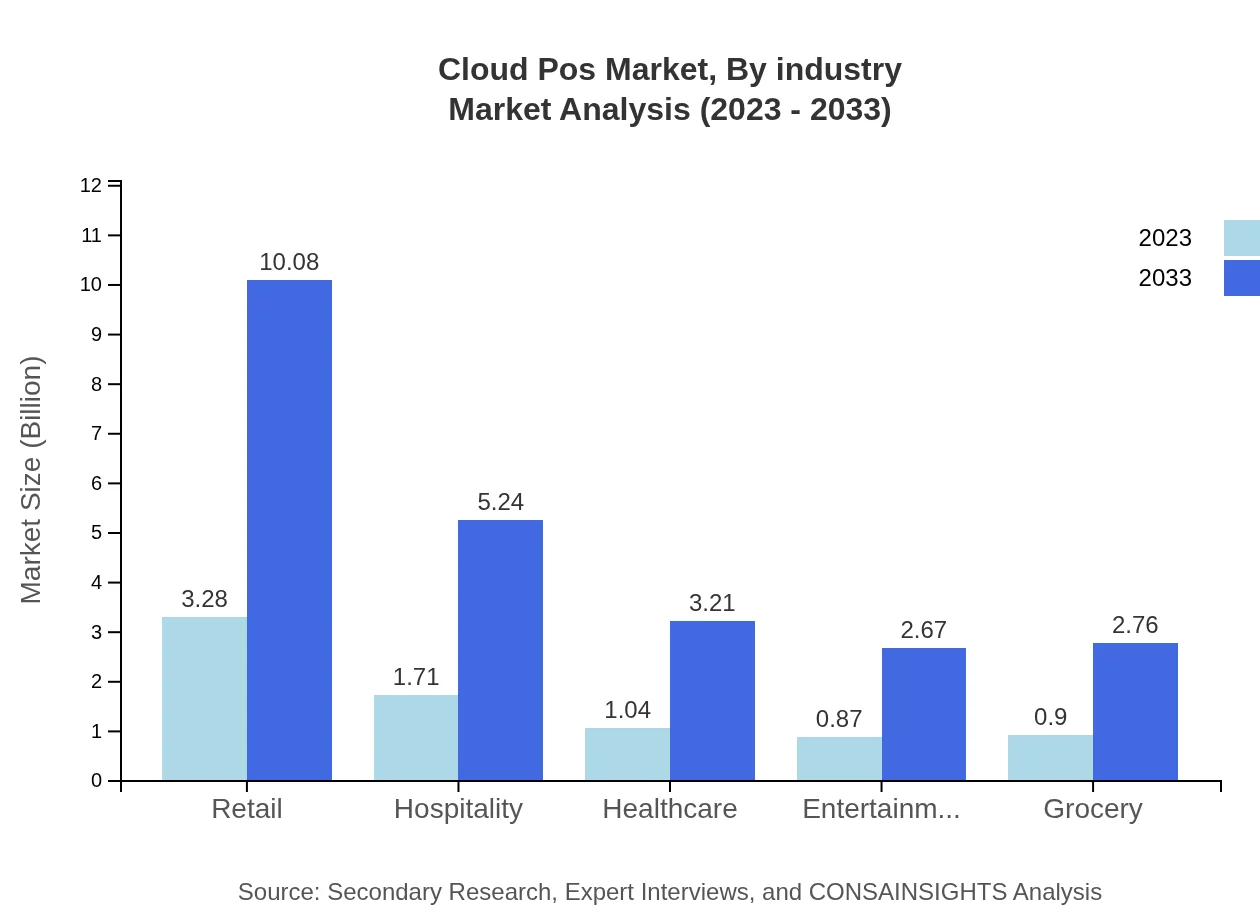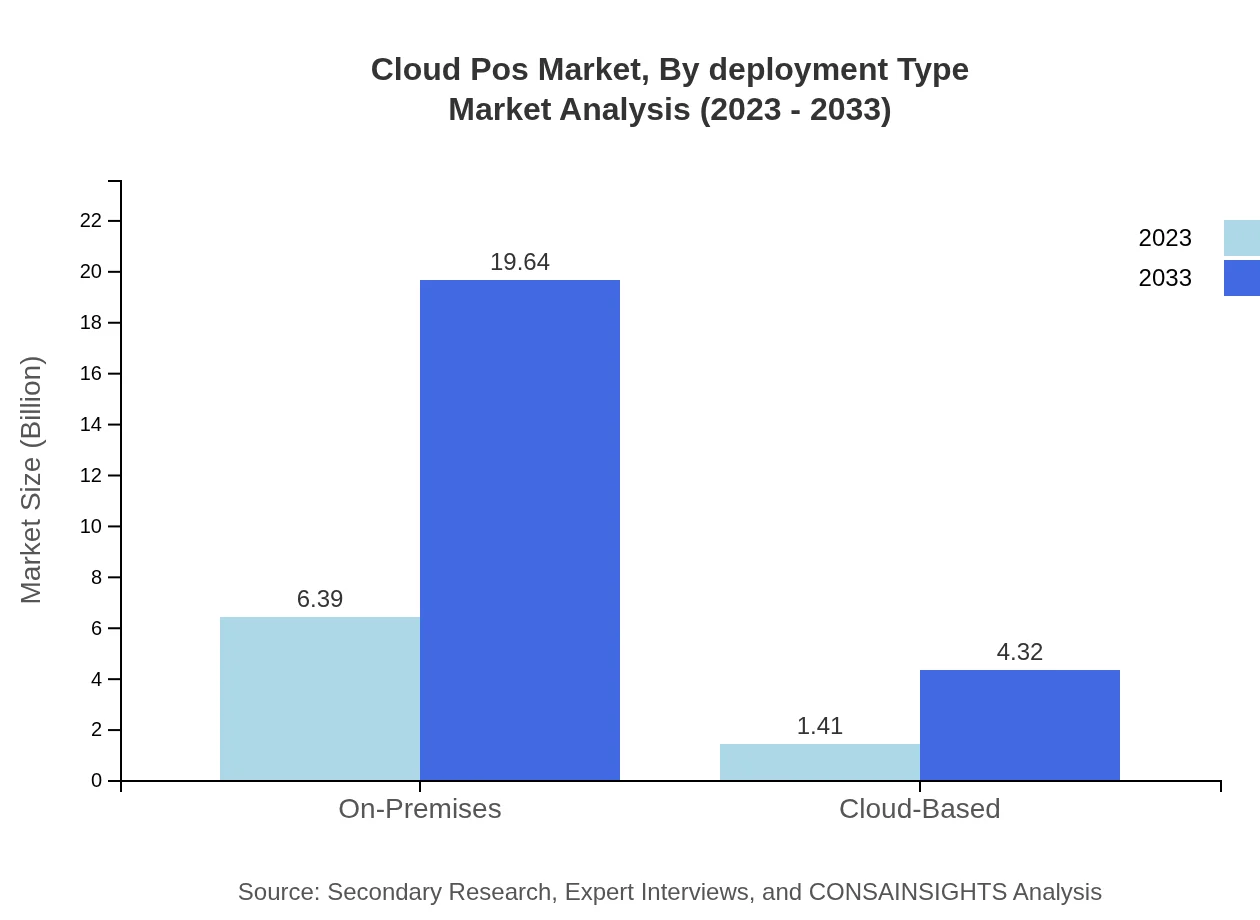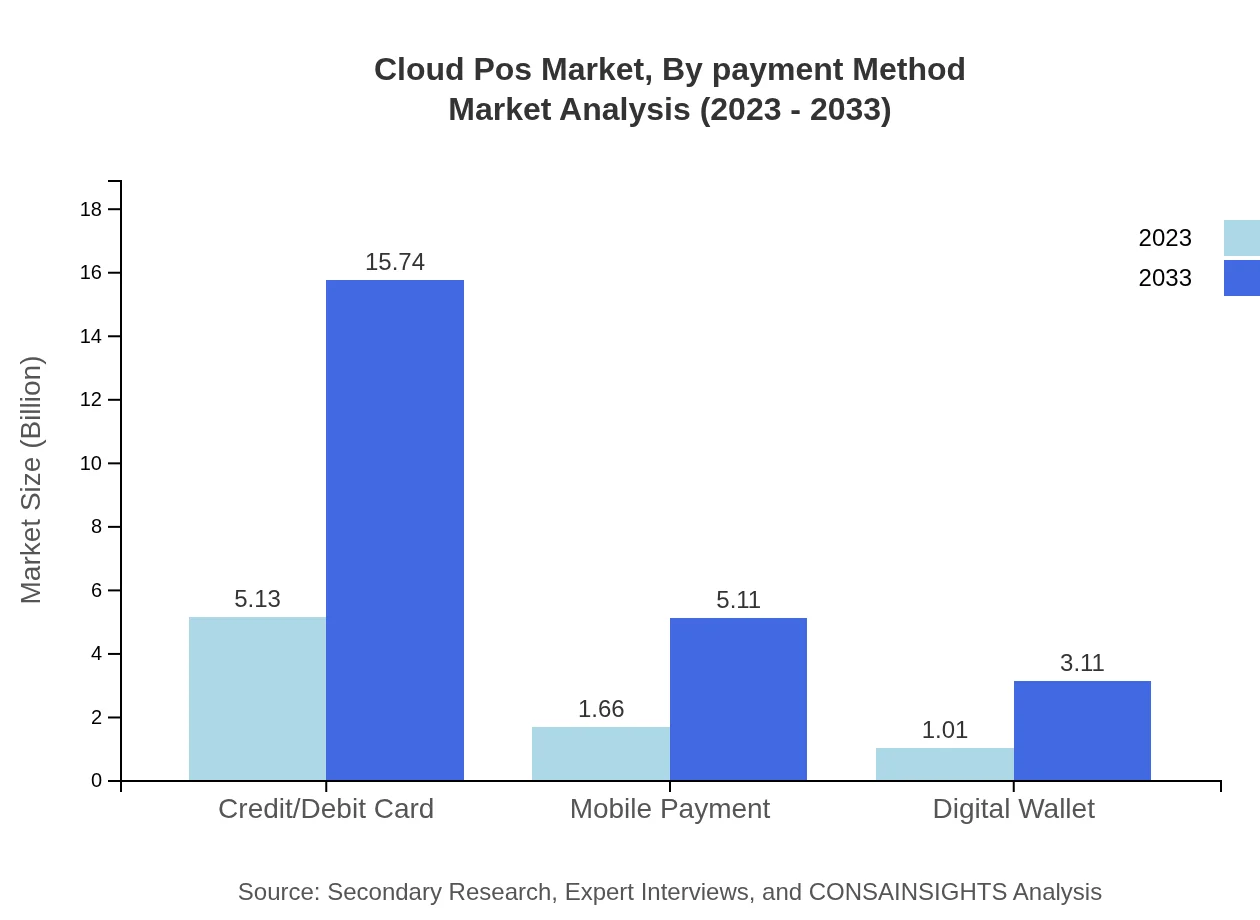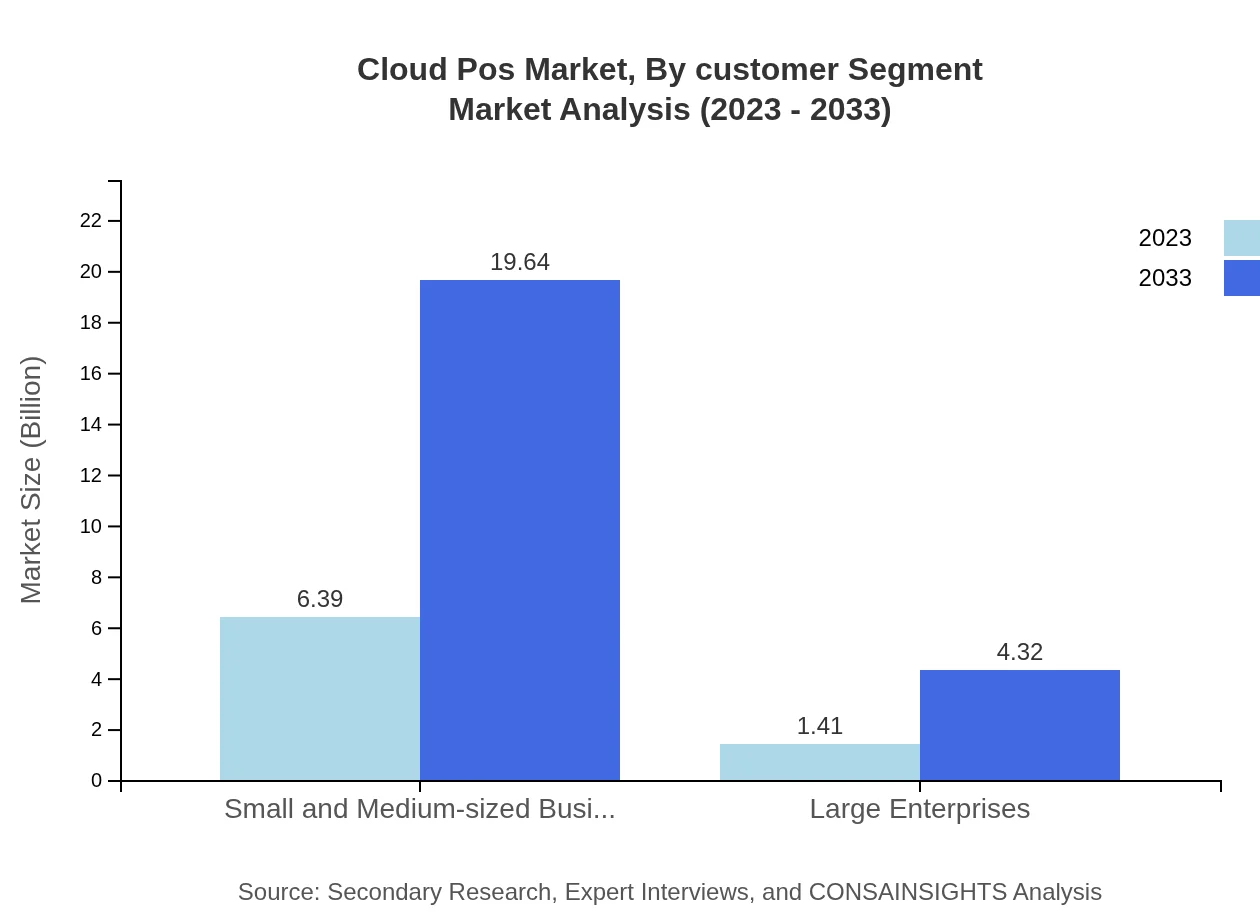Cloud Pos Market Report
Published Date: 31 January 2026 | Report Code: cloud-pos
Cloud Pos Market Size, Share, Industry Trends and Forecast to 2033
This report provides an in-depth analysis of the Cloud Pos market, covering market size, growth trends, regional insights, and competitive landscape, alongside forecast data from 2023 to 2033.
| Metric | Value |
|---|---|
| Study Period | 2023 - 2033 |
| 2023 Market Size | $7.80 Billion |
| CAGR (2023-2033) | 11.4% |
| 2033 Market Size | $23.96 Billion |
| Top Companies | Square Inc., Shopify Inc., Toast Inc., Lightspeed Commerce Inc. |
| Last Modified Date | 31 January 2026 |
Cloud Pos Market Overview
Customize Cloud Pos Market Report market research report
- ✔ Get in-depth analysis of Cloud Pos market size, growth, and forecasts.
- ✔ Understand Cloud Pos's regional dynamics and industry-specific trends.
- ✔ Identify potential applications, end-user demand, and growth segments in Cloud Pos
What is the Market Size & CAGR of Cloud Pos market in 2023?
Cloud Pos Industry Analysis
Cloud Pos Market Segmentation and Scope
Tell us your focus area and get a customized research report.
Cloud Pos Market Analysis Report by Region
Europe Cloud Pos Market Report:
The European Cloud Pos market is anticipated to increase from $2.09 billion in 2023 to $6.43 billion by 2033. Key motivations for this growth include stringent regulatory requirements related to data protection, a robust retail sector, and significant investments in IT infrastructure aimed at improving customer experiences.Asia Pacific Cloud Pos Market Report:
In the Asia Pacific region, the Cloud Pos market is expected to grow from $1.61 billion in 2023 to $4.95 billion by 2033. The growing middle class and increasing retail expenditures in countries like China and India are fuelling this expansion. Moreover, the rising trend of digital payments and government initiatives promoting cashless transactions further support market growth.North America Cloud Pos Market Report:
North America holds a significant share of the Cloud Pos market, with the size estimated at $2.65 billion in 2023 and expected to reach $8.14 billion by 2033. The presence of major market players and high adoption rates of technology among businesses contribute to this growth trajectory. Additionally, increased consumer expectations for seamless transaction experiences drive the demand for sophisticated Cloud Pos solutions.South America Cloud Pos Market Report:
South America is projected to see the Cloud Pos market expand from $0.41 billion in 2023 to $1.27 billion by 2033. Factors such as proposed e-commerce regulations, an increase in mobile payment solutions, and the need for modern POS systems in retail and hospitality sectors are pivotal to this growth.Middle East & Africa Cloud Pos Market Report:
In the Middle East and Africa, the market is expected to grow from $1.03 billion in 2023 to $3.16 billion by 2033. Increasing mobile internet penetration and burgeoning e-commerce activities within the region are key factors driving Cloud Pos adoption, alongside the modernization of retail businesses.Tell us your focus area and get a customized research report.
Cloud Pos Market Analysis By Solution
The Cloud Pos market in terms of solution type includes hardware, software, and services, with a market size of $5.13 billion for hardware, $1.66 billion for software, and $1.01 billion for services in 2023. By 2033, these segments are projected to grow to $15.74 billion, $5.11 billion, and $3.11 billion, respectively, highlighting hardware's dominant share in the market.
Cloud Pos Market Analysis By Industry
The industry segment showcases significant data with retail leading as the largest market at $3.28 billion (2023) and expected growth to $10.08 billion (2033). The hospitality and healthcare sectors also exhibit promising growth, driven by increasing demand for efficient payment processing and enhanced customer service.
Cloud Pos Market Analysis By Deployment Type
In 2023, on-premises solutions hold a substantial size of $6.39 billion, with forecasts up to $19.64 billion by 2033, representing 81.95% market share. Cloud-based solutions are rapidly increasing as businesses migrate to more flexible systems, currently valued at $1.41 billion, expected to grow to $4.32 billion.
Cloud Pos Market Analysis By Payment Method
Payment methods indicate a healthy mix with credit/debit card transactions leading at $5.13 billion (2023) and anticipated to increase to $15.74 billion. Mobile payments are projected to grow due to consumer demand for convenience, with growth from $1.66 billion to $5.11 billion by 2033.
Cloud Pos Market Analysis By Customer Segment
Small and medium-sized businesses dominate the customer segment with a market valuation of $6.39 billion in 2023, projected to reach $19.64 billion by 2033, representing 81.95% market share. Large enterprises are slower to adopt but expect to increase from $1.41 billion to $4.32 billion.
Cloud Pos Market Trends and Future Forecast
Tell us your focus area and get a customized research report.
Global Market Leaders and Top Companies in Cloud Pos Industry
Square Inc.:
Square is a leading provider of point-of-sale solutions, offering both hardware and software that enables businesses to take payments anywhere, with a strong focus on small to medium-sized enterprises.Shopify Inc.:
Shopify provides comprehensive e-commerce and POS solutions, helping retailers leverage digital tools to enhance their sales channels and customer experiences.Toast Inc.:
Toast focuses primarily on the restaurant industry, offering an integrated POS system tailored for restaurants, facilitating orders, payments, and customer engagement.Lightspeed Commerce Inc.:
Lightspeed offers a cloud-based POS platform that caters to retailers and restaurants, enabling seamless transaction processes and inventory management.We're grateful to work with incredible clients.









FAQs
What is the market size of cloud Pos?
The cloud POS market is projected to reach \$7.8 billion by 2033, growing at a CAGR of 11.4%. This indicates significant expansion within the industry, driven by increasing adoption of cloud technologies.
What are the key market players or companies in this cloud Pos industry?
Key players in the cloud POS industry include major technology firms and retail software companies that provide innovative solutions to enhance operational efficiency and customer experiences.
What are the primary factors driving the growth in the cloud Pos industry?
Growth in the cloud POS industry is fueled by the digitization of retail, increasing demand for contactless payment systems, and a surge in e-commerce activities. These factors continue to shape market dynamics.
Which region is the fastest Growing in the cloud Pos?
The fastest-growing region in the cloud POS market is North America, anticipated to grow from \$2.65 billion in 2023 to \$8.14 billion by 2033, driven by tech-savvy consumers and robust internet infrastructure.
Does Consainsights provide customized market report data for the cloud Pos industry?
Yes, Consainsights offers tailored market reports based on specific business needs, helping clients gain detailed insights into the cloud POS industry, including market trends and competitive analysis.
What deliverables can I expect from this cloud Pos market research project?
Deliverables from the cloud POS market research project include comprehensive reports, market forecasts, competitive landscape analysis, and detailed segment insights that provide actionable recommendations.
What are the market trends of cloud Pos?
Current trends in the cloud POS market include the rise of mobile payment solutions, a shift toward subscription models for software, and the integration of artificial intelligence to enhance customer experiences.

